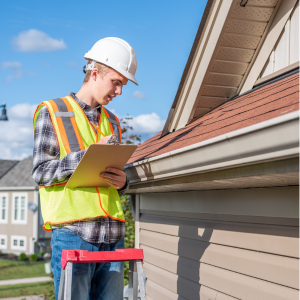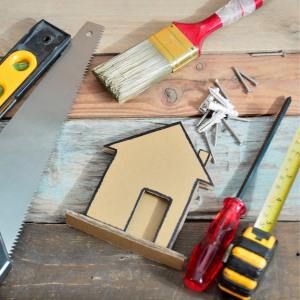
Understanding Appraisal Required Repairs in Texas Real Estate
In the Texas housing market, knowing what appraisal-required repairs are can make or break a deal for sellers and buyers alike. When an appraiser visits a home, they not only set its value but also point out fixes that might prevent the house from selling easily or getting financed.
Lenders want to safeguard their money, so they typically insist that certain repairs are completed before proceeding with a mortgage. A regular Texas checklist includes fixing safety hazards, patching noticeable structural damage, and ensuring the plumbing, electrical, and heating and cooling systems are all working correctly.
Sellers must respond to these issues quickly to keep the closing date on track. Buyers with the same list can use it to haggle or, in some cases, revise their offer depending on what they estimate the repairs will cost.
Even little problems matter more than most people think; they might lower the appraisal value or tighten the buyers’ financing choices. Knowing the usual repair costs in Texas appraisals makes the deal easier and reduces the late surprises everyone hates.
Key Factors Influencing Property Appraisals in Texas
In Texas real estate, appraisers consider a handful of big-picture items that every seller and buyer should know. First and foremost, where a property sits matters a lot; homes in sought-after hoods or close to schools, parks, and shops usually earn more.
The house’s upkeep is next on the list; a fresh roof, working appliances, and a tidy yard push the value up while leaking pipes or peeling paint can drag it down. Current market vibes also play a part; when demand outstrips available listings, most properties see their appraised figure climb.
Comparable sales, usually called comps, reveal the prices of similar homes nearby and are fundamental in determining your house’s worth. Beyond that, thoughtful upgrades-energy-efficient appliances, modern kitchens, or added living space-typically lift the final appraised value.
Zoning rules and talk of new parks or stores can sway an appraiser’s view because they shape how attractive and promising a neighborhood seems. Sellers wanting top dollar and buyers hunting fair prices do well to keep these pieces in mind before a sale.
Common Repairs Mandated by Texas Home Appraisers
Understanding the common repairs mandated by home appraisers in Texas real estate is crucial for sellers and buyers. Appraisals often identify necessary maintenance to ensure the property meets safety and market standards.
Buyers often expect common repairs to cover obvious structural troubles like cracked foundations or a torn roof, since both can hurt a home’s value and safety the moment they’re seen. Upgrades to the electrical system routinely appear on to-do lists because old wiring or worn parts can become serious fire risks overnight.
During the appraisal, our inspectors watch for plumbing leaks or weak pressure, so fixes usually pop up, too. Work on heating, cooling, and ventilation is also often needed because those systems keep rooms livable in every nook and cranny of Texas’s wild weather.
Home appraisers might also require improvements related to pest control if there is evidence of termite damage or other infestations that could compromise the property’s integrity. Ensuring proper drainage and eliminating signs of water damage are additional standard repair mandates, as these factors can lead to mold growth and further structural deterioration if not addressed promptly.
Understanding these potential requirements helps sellers prepare their homes for sale and gives buyers a clearer picture of what may need attention before finalizing their purchase. Contact us for customized advice.
How to Prepare for a Home Appraisal in the Texas Housing Market
Getting ready for a home appraisal in today’s Texas market means taking practical steps to make the report more favorable for sellers. First, give the house a detailed clean and remove excess clutter; a tidy, organized space creates a stronger first impression and subtly guides the appraiser’s opinion.
Begin with simple repairs, such as plumbing leaks, patched drywall, and new light bulbs, because inspectors always mention the obvious. Little touches like neutral paint, functional smoke alarms, and tidy yards lift the home’s look yet cost little.
Both buyers and sellers should collect papers, recent tax notices, property plans, and receipts for big fixes so the appraiser has a complete background from which to work. Knowing local trends helps, too; checking the sale prices of similar homes nearby sheds light on how to set or evaluate the value fairly.
Ensuring easy access to all areas of the home will allow the appraiser to conduct a thorough evaluation without obstacles. A thoughtful approach before the Texas real estate appraisal lets homeowners boost their property’s worth and dodge last-minute surprises tied to fix-it chores the appraiser might flag.
The Role of Home Inspections in Texas Property Valuations

Home inspections play a crucial role in property valuations in the Texas real estate market, particularly when understanding appraisal-required repairs. For home sellers and buyers, these inspections are an essential step in the appraisal process as they comprehensively evaluate a property’s condition.
A thorough home inspection usually reveals problems affecting a house’s value, such as a settled foundation, tangled vintage wiring, or dripping pipes. In Texas, appraisers factor these headaches into their calculations, subtracting the estimated repair bills from the house’s final worth.
Sellers benefit from tackling the flagged issues before listing because doing so can raise the asking price and draw a wider pool of buyers. Buyers, for their part, use the inspector’s notes as leverage, asking for cash credits or insisting that repairs get done before the deal closes.
Understanding how home inspections influence property valuations helps parties make informed decisions in Texas’s competitive real estate environment.
Strategies for Addressing Required Repairs Before an Appraisal in Texas
Before an appraisal in the Texas real estate market, home sellers and buyers should tackle needed repairs so the property shows well and the deal moves faster. Sellers often begin with a full pre-listing inspection to catch problems that could affect the appraiser’s final number.
Prioritizing necessary repairs, such as roof leaks, electrical problems, or plumbing defects, can prevent delays and ensure compliance with lender requirements. Collaborating with experienced contractors familiar with Texas regulations will guarantee that all work meets local standards, thereby increasing the likelihood of a favorable appraisal.
Sellers and buyers benefit when repair duties are sorted out early, so any promised work gets done before the sale is locked in. Tackling these issues head-on and keeping clear, honest chatter between everyone involved often leads to a more effortless closing and helps the property stand out in the tough Texas market. Fast House Buyers Texas can assist in navigating these steps to ensure a successful transaction.
Navigating the Appraisal Process for First-time Homebuyers in Texas
Texas first-time homebuyers often find the appraisal process a little overwhelming, mainly because it connects directly to the repairs needed for mortgage approval. In the Lone Star State, appraisals do more than set a dollar amount; they spotlight anything that could hurt the home’s safety or appeal in the market.
The time from the appraisal to closing is critical. Lenders usually expect sellers—or, in some cases, buyers—to fix items the appraiser flags before the loan can proceed. The list can cover big-ticket items like a sagging foundation or leaky roof and everyday hazards such as faulty wiring or aging plumbing.
First-time buyers in Texas should team up with their real estate professionals and, if needed, bring in a contractor to rough out repair costs so they can ask sellers to cover the repairs before closing. Knowing these steps and how they fit into the overall deal is key to keeping the transaction on track and sidestepping headaches in the state’s fast-moving market.
The Impact of Repair Requirements on Home Sellers in Texas
In Texas real estate, requested repairs on an appraisal can hit home sellers hard because they shape how quickly a house sells and what price the buyer is willing to offer. When an appraiser spots work that must be done, the seller tends to decide whether to fix it right away or gamble that a low value won’t scare off every interested buyer.
Common appraisal repairs focus on safety hazards, big structural problems, or anything else that keeps a home from living comfortably or meeting lender rules. For the seller, that often means spending money so the house passes muster, a move that adds to upfront costs but usually clears the way for a faster, less bumpy closing.
Moreover, addressing these repairs can broaden the pool of eligible buyers who rely on financing contingent upon satisfactory appraisals. Ignoring required repairs in Texas might lead to prolonged listing times or reduced offers, making it crucial for sellers to weigh their options carefully and consider preemptive measures to enhance their negotiating position and appeal in the competitive Texas real estate market.
Balancing Buyer and Seller Expectations with Repair Negotiations in Texas Real Estate

Balancing buyer and seller expectations during repair negotiations is crucial for a successful deal in Texas real estate transactions. After an appraisal, buyers frequently ask for repairs so the home meets specific guidelines, yet sellers are often reluctant to spend more on the house.
Knowing the repairs tied to the appraisal lets each side move through this sensitive stage more smoothly. Buyers should clearly state which fixes they see as must-dos and back their requests with details from the appraisal document.
Meanwhile, sellers are advised to weigh repair requests calmly, asking how each item could affect the final sale price and whether current market conditions might soften or strengthen buyer demands. A bit of give-and-take usually helps; buyers often lock in on serious safety or structural flaws but will let paint scars slide, and sellers, for their part, may prefer a modest repair credit over chasing every loose tile or dent.
When both sides tackle these talks in a spirit of partnership, they keep the mood respectful and increase the odds of closing quickly, a critical advantage in Texas’s fast-moving real estate scene.
Essential Tips for Passing a Home Appraisal Inspection in Texas
When preparing for a home appraisal inspection in Texas, sellers and buyers must understand the essentials of passing smoothly through this process. Start by addressing any needed repairs before the appraisal takes place.
Focus on the spots inspectors usually zero in on: the roof, foundation, plumbing, and wiring. Making sure those systems look solid and work well can prevent trouble from popping up on appraisal day.
Giving your home’s exterior a quick polish pays off during an appraisal; little touches like fresh mulch or a clean coat of paint signal pride of ownership and catch the inspector’s eye. Keep copies of permits for any recent upgrades on hand. Those small papers show you followed the rules, care about detail, and boost the overall value picture.
Keeping an eye on the recent sales of homes around you gives a pretty good sense of where an appraisal could end up, so your expectations stay realistic. When you freshen up curb appeal and track those trends, you nudge the process toward a straightforward appraisal and a quicker sale in Texas’s busy housing scene.
Legal Considerations for Mandatory Repairs During a Real Estate Transaction in Texas
Understanding the legal considerations for mandatory repairs is crucial in Texas real estate transactions for both home sellers and buyers. When an appraisal turns up needed repairs, the list usually comes straight from the loan underwriters’ guidelines, particularly with government-backed loans such as FHA and VA mortgages.
In Texas, sellers must openly share any known defects in a home. Yet, once an appraisal spells out its must-do fixes, the buyer and seller must stick to the duties spelled out in the contract they signed. The Texas Real Estate Commission (TREC) provides standard contracts that typically include clauses about how repairs should be negotiated and completed before closing.
Investor home buyers in Dallas and other Texas cities should be aware that if the seller refuses to make necessary repairs, they may have the option to withdraw from the contract without penalty if it includes a repair contingency clause. Sellers must consider what happens if they leave repairs undone; problems can drag out closing or even spark legal arguments later.
Buyers and sellers should team up with a good real estate lawyer or an agent who knows the rules so everyone follows state law from start to finish.
How Climate and Weather Conditions Affect Required Repairs in Texan Homes
Knowing how Texas weather affects repair needs helps home sellers and buyers avoid surprises at closing. Because the state’s climate shifts from humid near the Gulf to near-desert in the west, the repairs appraiser flags can look very different from one house to the next.
Excess moisture along the coasts’ humid edge invites mold, rotting wood, and foundation troubles as shrink-swell clay soil expands and shrinks with the seasons. Further west, blistering heat and long dry spells pull moisture from soil and concrete, cracking foundations and peeling paint.
Texas weather can be rough. Hailstorms, tornadoes, and the odd hurricane sweep across the state now and then, leaving roofs, siding, and windows in tough shape. Because of this, appraisers zero in on these spots each time they look over a home.
Understanding these climate-related factors helps sellers anticipate potential repair costs while enabling buyers to make informed decisions about property investments in Texas.
Financing Options for Covering Necessary Repairs After an Appraisal in Texas
When an appraisal flags needed repairs in a Texas real estate deal, sellers and buyers should know how financing can adapt. A typical path is a renovation loan like the FHA 203(k), which rolls the fix-up cost into the primary mortgage so buyers simultaneously pay for the house and repairs.
Sellers who offer repair credits give buyers an easy way to cover the work later. The credit can be used toward closing costs or the repairs themselves. A conventional loan with escrow holdbacks is another solid choice; in this plan, part of the sale proceeds sits in a dedicated account until the work is done, ensuring the repairs get paid for right after closing.
Hard money loans can also give you fast cash when repairs can’t wait, though their interest rates are usually steeper. Because of that, some homeowners turn to personal loans or a home equity line of credit, or HELOC, to cover the bills.
Understanding these financing methods helps all parties more effectively navigate the complexities of appraisal-required repairs in the Texas real estate market.
The Influence of Local Codes and Regulations on Repair Requirements in Texan Properties

Understanding local codes and regulations is crucial for home sellers and buyers when dealing with appraisal-required repairs in Texas real estate. These local ordinances significantly influence the appraisal process, as appraisers must ensure that properties comply with specific safety, health, and structural standards mandated by municipal or county governments.
For instance, a property in Texas might need to address electrical or plumbing issues to meet local building codes before a sale can proceed. Environmental concerns like floodplain regulations or energy efficiency standards can also affect repair requirements, impacting the property’s appraised value.
Buyers should know that failing to adhere to these local regulations could lead to costly post-purchase repairs or legal challenges. Sellers benefit from understanding these codes as they prepare their homes for the market, ensuring compliance can expedite sales processes and improve buyer confidence.
By being informed about how local rules impact appraisal requirements, both parties can more effectively navigate the complexities of Texan real estate transactions.
Energy Efficiency Improvements as Part of Required Repairs During an Appraisal
Understanding the role of energy efficiency improvements in Texas real estate as part of appraisal-required repairs is crucial for home sellers and buyers. During appraisal, appraisers may identify specific maintenance necessary to meet lending requirements, often including enhancements to improve a property’s energy efficiency.
Such improvements increase the home’s market value and make it more attractive to environmentally conscious buyers. Standard energy-efficient upgrades might involve installing modern insulation, replacing outdated windows with double-pane alternatives, or upgrading HVAC systems to more efficient models.
These modifications can lower utility bills and create a more sustainable living environment. For sellers, addressing these energy efficiency issues before listing their property can facilitate a smoother transaction process and potentially elevate the property’s appeal in competitive markets like those in Texas.
Buyers should be aware that investing in homes with such improvements can result in long-term savings and increased comfort. Understanding how these energy-efficient repairs fit the overall appraisal requirements ensures that both parties are better prepared for successful real estate transactions in Texas.
The Importance of Curb Appeal and Exterior Maintenance on Property Value Assessments
Curb appeal and exterior maintenance are crucial in property value assessments, particularly in the Texas real estate market. When appraisers evaluate a home, the first impression is often formed by the property’s exterior, making curb appeal an essential factor in determining a home’s appraisal value.
Well-maintained landscaping, fresh paint, and clean driveways can significantly enhance a property’s attractiveness, leading to higher valuations. In contrast, neglected exteriors with peeling paint or overgrown lawns can detract from a property’s perceived worth and result in lower appraisals.
Buyers are more likely to be drawn to homes that present well from the outside, which signals proper upkeep and care throughout the property. For sellers aiming to maximize their property value, investing in curb appeal improvements can yield substantial returns during the appraisal process.
Furthermore, regular exterior maintenance boosts immediate visual appeal and suggests fewer potential repairs required by appraisers during their inspection, which benefits sellers and buyers navigating Texas real estate transactions.
Insights From Professional Realtors on Managing Repair Requests Post-appraisal
Professional realtors in Texas offer valuable insights into managing repair requests that arise post-appraisal, a crucial aspect for both home sellers and buyers navigating the real estate market. After an appraisal identifies necessary repairs, it’s critical to understand how these requirements can impact the transaction.
Real estate professionals emphasize clear communication between all parties involved, including buyers, sellers, and their respective agents. They advise sellers to be proactive by addressing any obvious issues before listing their property, which can prevent complications after an appraisal.
Understanding how appraisal-required repairs might affect mortgage approval is essential for cash house buyers in Austin and surrounding cities in Texas. Realtors often recommend negotiating with flexibility; sellers might agree to make certain repairs or reduce the selling price instead.
Buyers should be aware of potential financing challenges if lenders mandate major repairs. Additionally, experienced realtors stress the importance of detailed documentation throughout the process to avoid misunderstandings and facilitate smoother negotiations.
In Texas’s competitive real estate environment, leveraging a realtor’s expertise in handling these repair requests can lead to more successful transactions for both parties.
Case Studies: Overcoming Common Challenges with Appraisal Repairs in Texas
In Texas real estate, navigating appraisal-required repairs can often present challenges for home sellers and buyers. One common issue arises when the appraised value of a property comes in lower than expected due to necessary repairs identified during the appraisal process.
For instance, a seller might need to address roofing issues or outdated electrical systems to meet lender requirements and avoid jeopardizing the sale. On the other hand, buyers may encounter difficulties securing financing if these repairs are not completed before closing.
Successful case studies highlight the importance of clear communication and negotiation between parties. Sellers can prioritize essential repairs, while buyers might agree to handle minor fixes post-purchase. Another strategy involves leveraging repair amendment negotiations, where both parties reach a mutually beneficial agreement on repair responsibilities and costs.
In some instances, sellers have offered credits at closing to cover anticipated repair expenses, thus facilitating a smoother transaction process. Understanding these dynamics is crucial for effectively managing appraisal-required repairs in Texas real estate transactions, ensuring buyers and sellers achieve their goals without unnecessary delays or complications.
Can an Appraisal Require Repairs?
Understanding whether an appraisal can require repairs is critical for both home sellers and buyers in the Texas real estate market. During a property transaction, the appraisal process is key in determining the home’s value, directly impacting financing options.
While appraisers primarily focus on assessing value, they may identify specific conditions that necessitate repairs to comply with lender requirements or safety standards. These appraisal-required repairs often stem from issues related to health and safety concerns, such as structural integrity, electrical problems, inadequate roofing, or the presence of hazardous materials like asbestos.
For FHA loans and other government-backed mortgages, stricter guidelines may lead appraisers to highlight necessary repairs before loan approval can proceed. Home sellers in Texas should be prepared for these potential repair requests and consider addressing common issues beforehand to streamline the selling process.
On the buyer’s side, understanding these requirements can better inform negotiations and ensure a smoother transaction by anticipating potential costs associated with mandatory repairs identified during the appraisal.
What Happens When the Seller of the Property Won’t Fix the Repairs the Appraiser Required?
When the seller of a property in Texas refuses to make the appraisal-required repairs, it can significantly impact the real estate transaction for both buyers and sellers. In such scenarios, understanding your options becomes crucial.
Lenders often require certain repairs to be completed before approving a mortgage loan for home buyers relying on mortgage financing. If the seller is unwilling to address these issues, buyers may need to negotiate alternative solutions, such as price reductions or repair credits at closing.
Sellers should recognize that refusing to make necessary repairs could deter potential buyers or lead to delays in closing. Additionally, this refusal might result in an impasse where buyers decide to walk away from the deal altogether.
Both parties should consider consulting with their real estate professionals or attorneys familiar with Texas real estate laws to explore possible resolutions and ensure a smooth transaction process despite these challenges.
Do you need to sell your house? Sell quickly, avoid expensive repairs, or want a hassle-free transaction. Fast House Buyers Texas is here to help. We make fair cash offers, handle all details, and simplify the process. Are you ready to sell, or do you have any questions? Call us at (956) 204-3333 for a no-obligation quote. Get started now!
| TAXING | TAXES | TAXPAYERS | TAXATION | VEHICLE | MOTOR VEHICLE |
| ESCROW ACCOUNT | INSURANCE COMPANIES | INSURANCE | INSURANCE COMPANY | INSURED | INSURERS |
| POLICYHOLDERS | INSURANCE INDUSTRY | INSURANCE AGENTS | INSURANCE CARRIERS | INSURANCE ADJUSTERS | INSURANCE CLAIMS |
| PARKS AND WILDLIFE | WAIVERS | ORGANIZATION | PAYMENTS | RENTER | RENTAL |
| RENTAL INCOME | HOME OWNERSHIP | DATA | COURT | GAS | CASH |
| LEGISLATURE | HOME LOAN | MORTGAGE LENDING | HEATER | HVAC (HEATING, VENTILATION, AND AIR CONDITIONING) | FEES |
| HOT WATER | WATER HEATER | EXPENDITURES | DWELLING | U.S. DEPARTMENT OF HOUSING AND URBAN DEVELOPMENT’S | HUD |
| HUD’S | UNITED STATES | U.S. | REASON | PRESUMPTION | POLICIES |
| POLICY | LIABILITY | SUIT | FILED SUIT | LAWSUIT | LITIGATION |
| HOME INSPECTOR | HANDRAILS | SAN ANTONIO | OWNERSHIP | INVOICES | INSURANCE CONTRACT |
| INSURANCE POLICIES | CIRCUIT BREAKER | VALVE | STAIRS | LEAD-BASED PAINT | |
| ELECTRICITY | EARNEST MONEY | EARNEST MONEY DEPOSIT | DOLLARS | BANK | ASBESTOS |
| VA LOANS | USDA | SHINGLE | RELIEF VALVE | OPINION | MARKETING |
| FORMULA | FINANCIAL INSTITUTION | FAILURE | THE PROPERTY IS |
Helpful Texas Blog Articles
- Guide To Leaving Your Texas Home Vacant
- How to Sell Jointly Owned Property in Texas
- Paperwork Needed to Sell a House by Owner in Texas
- Selling a House with Code Violations in Texas
- Understanding Realtor Fees In Texas
- Can You Back Out Of A Real Estate Contract In Texas?
- Selling Your House As-is In Texas
- Selling A Foreclosed Home In Texas
- Selling Your Texas Home By Owner
- Understanding Appraisal Required Repairs In Texas
- Texas Estate Administrators Can Legally Sell Real Estate

